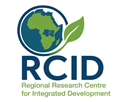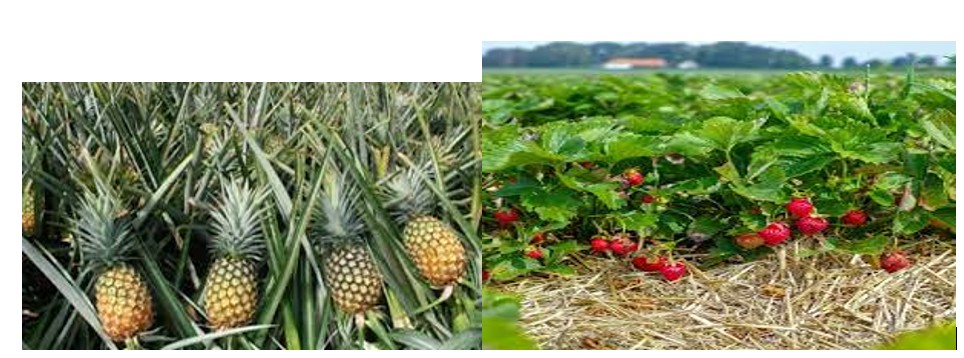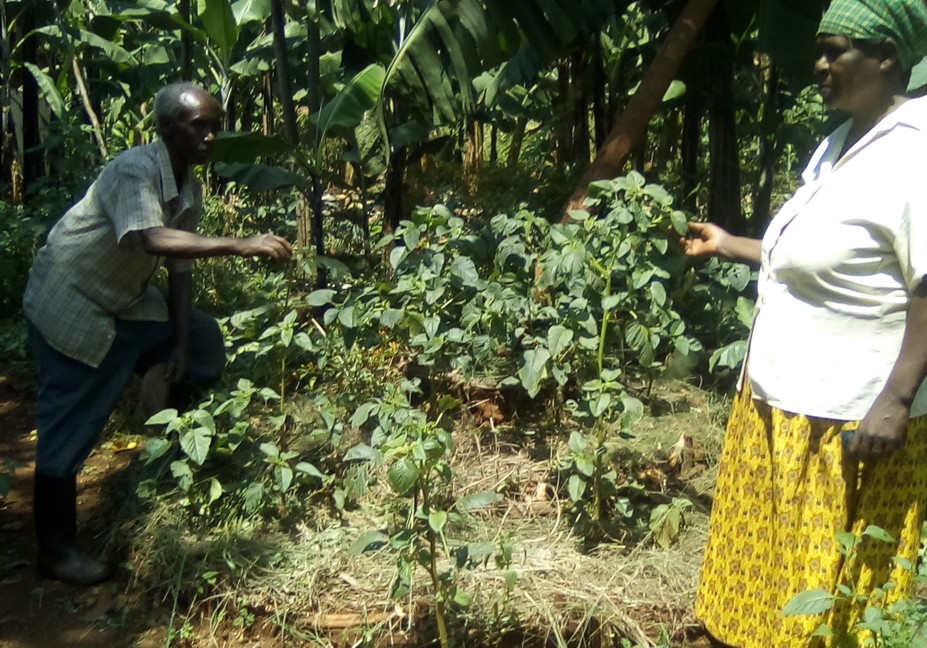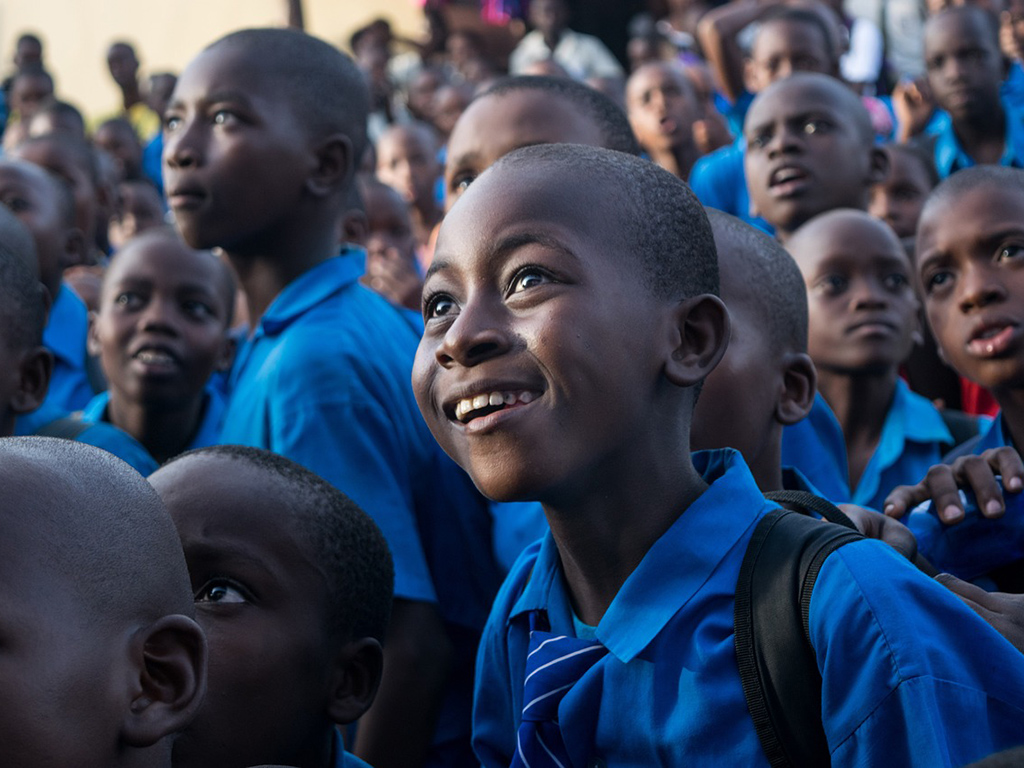RCID PROFILE AND UPDATED PROJECT-WEBSITE IN ECOLOGICAL ORGANIC AGRICULTURE
5+
Major Projects
1,000+
Beneficiaries
Nationwide
Impact
Baseline study to assess the status of Ecological Organic Agriculture (EOA) in pineapple and strawberry value chains in Rwanda
The Regional Research Centre for Integrated Development (RCID Ltd), in collaboration with the University of Technology and Arts of Byumba (UTAB) and the Rwanda Organic Agriculture Movement (ROAM), conducted a baseline study to assess the status of Ecological Organic Agriculture (EOA) in pineapple and strawberry value chains in the districts of Gakenke, Kamonyi, Muhanga, and Rulindo. The study was part of the wider Ecological Organic Agriculture Initiative (EOAI), supported by the Swiss Agency for Development and Cooperation (SDC) under the African Union’s efforts to promote sustainable, climate-resilient farming systems.
The primary objective of the study was to analyze the value chains for pineapple and strawberry in order to identify knowledge gaps, challenges, and priorities among actors, with a focus on women, youth, and marginalized groups. Using structured questionnaires, data was collected from 333 farmers 244 cultivating pineapple and 89 cultivating strawberry. Findings showed that 75.38% of respondents were engaged in pineapple farming, while 24.62% cultivated strawberries. Pineapples were grown in Gakenke (27.93%), Kamonyi (15.62%), and Muhanga (31.83%) but not in Rulindo. In contrast, strawberry cultivation was noted only in Muhanga (2.70%) and Rulindo (21.92%).
The study underscored the negative impact of industrial fertilizers on soil health and biodiversity, positioning EOA as a viable alternative to enhance environmental sustainability and farmer resilience. This work strengthens RCID’s ongoing role in advancing agroecological practices in Rwanda and is featured on our official website: www.rcid-rwanda.org.
Data-Driven Insights for Sustainable Agriculture in Africa (DISA) – Regenerative Agriculture in Rwanda
Funded by Future Earth in partnership with MILA, the Data-Driven Insights for Sustainable Agriculture (DISA) project aimed to integrate digital technologies and regenerative practices into Rwanda's agricultural systems. Led by the Regional Research Centre for Integrated Development (RCID), the project was implemented in 2022 and 2023 to enhance the country's capacity for sustainable and climate-resilient agriculture.
RCID conducted a nationwide survey of 815 smallholder farmers across diverse agroecological zones to assess the uptake of regenerative agriculture (RA) practices. Utilizing GIS tools such as ArcGIS Pro and QGIS, the team mapped surveyed farms, land use patterns, and clusters of RA techniques. Advanced technologies including satellite imagery, artificial intelligence (AI), and machine learning (ML) were used to identify and quantify key indicators related to land use, soil health, crop performance, and the spatial distribution of regenerative practices. Historical agronomic data was analyzed to generate site-specific crop rotation recommendations using predictive modeling.
The project also explored the feasibility of robotics in automating RA activities, assessing both technical and economic viability. RCID's participatory approach involved stakeholder consultations, validation workshops, and collaborative design of decision-support tools, ensuring that scientific outputs were aligned with the experiences and needs of farmers.
The project demonstrated RCID's capacity to deliver data-driven planning and geospatial intelligence in agricultural development. The outcomes provide actionable insights for policy design, land use planning, and climate-smart agriculture, contributing to sustainable food systems and environmental resilience in Rwanda.
Baseline study on integrating Agro ecological practices in agricultural Intensification program (CIP) in Rwanda
The Regional Research Centre for Integrated Development (RCID Ltd) was contracted by ACORD Rwanda to conduct a national baseline study under the Transition towards Agroecology at the Service of Food Sovereignty (TAPSA) program. This initiative, co-financed by Agence Française de Développement (AFD) and implemented in partnership with CCFD-Terre Solidaire, aimed to foster a transition to agroecology as a means of achieving sustainable food security, restoring soil fertility, and enhancing ecological resilience in rural areas. The program was designed to engage key stakeholders and promote collective advocacy for a socially and ecologically transformative agricultural model.
The baseline study, conducted in eight districts including Bugesera, Kamonyi, Musanze, and Ngororero, focused on assessing the knowledge, attitudes, and practices (KAP) of farmers and stakeholders regarding Agroecological Practices (AEPs) within the context of Rwanda's Crop Intensification Program (CIP). It aimed to identify feasible entry points for integrating AEPs into commercial intensification on consolidated land, with an emphasis on enhancing long-term soil health, food production, and sustainability.
The assessment examined specific agroecological techniques such as mulching, composting, intercropping, rainwater harvesting, and the use of natural pesticides as alternatives to input-intensive agriculture. The study further identified institutional gaps, policy limitations, and awareness barriers among cooperatives, extension agents, and local authorities. It provided evidence-based recommendations on scaling agroecological principles through training, policy integration, and participatory planning mechanisms.
Findings from the baseline informed the design of targeted capacity-building and advocacy interventions to strengthen local food systems and reduce environmental degradation. RCID's participatory and research-driven approach contributed to aligning TAPSA's objectives with Rwanda's broader landscape restoration and sustainable land management goals under the Rwanda ecological integrated planning framework.
Intercropping of Maize and beans in Rwanda
Intercropping of Maize and beans in Rwanda - A sustainable farming practice that improves soil fertility and crop yields while reducing pest pressure and enhancing biodiversity.
Scope study on “Transforming Rural Economies and Youth Livelihoods (TREYL) assessment in Rwanda
From November 2021 to February 2022, the Regional Research Centre for Integrated Development (RCID) conducted a scoping study in Rwanda under the commission of Practical Action in East Africa, as part of the regional Transforming Rural Economies and Youth Livelihoods (TREYL) initiative. Initially piloted in Kenya, TREYL seeks to rejuvenate rural economies across East Africa, particularly in Rwanda, by promoting regenerative agriculture and inclusive market systems that generate meaningful livelihood opportunities for youth and marginalized groups.
The study aimed to assess the feasibility and contextual fit of introducing a market-driven regenerative agriculture program tailored to the Rwandan setting. Through field assessments, stakeholder consultations, and policy reviews, RCID explored viable agribusiness options, gaps in youth employment, existing value chains, and the enabling environment for regenerative agricultural practices. A strong focus was placed on gender equity, sustainability, and systemic barriers faced by rural youth.
Findings from the study revealed a high potential for scaling regenerative practices in Rwanda, especially within the horticulture, apiculture, and agroforestry sub-sectors. The results informed Practical Action’s decision to move forward with programme design in Rwanda. The study also provided actionable recommendations on youth engagement models, policy alignment, and private sector linkages. This work reinforced RCID’s expertise in youth-focused rural development and positioned it as a key partner in advancing regenerative agriculture in Rwanda.
Rapid Assessment on the Availability, Supply and Use of the Organic Fertilizers by the Smallholder Farmers in Rwanda
With support from IMBARAGA Farmers Organization and the Norwegian People's Aid (NPA), the Regional Research Centre for Integrated Development (RCID) conducted a rapid assessment on the availability, supply, and use of organic fertilizers among smallholder farmers in Rwanda. IMBARAGA, a national farmers' organization with over 30,400 members across 26 districts, implements the "Public Policy Information and Monitoring Advocacy (PPIMA)" project in Gakenke and Ruhango districts. PPIMA aims to strengthen civic engagement in public policy and improve service delivery, especially for the poor.
Through this assignment, RCID was tasked with generating evidence to inform and support advocacy strategies that promote government support for the production, access, and use of organic fertilizers in 2022. The study aimed to assess the accessibility of organic inputs by smallholder farmers, identify constraints along the supply chain, and propose effective policy recommendations.
The assessment employed a mixed-methods approach, combining household surveys with key informant interviews and focus group discussions. RCID engaged with farmers, input suppliers, extension workers, and representatives from government agencies and civil society organizations. The research covered multiple districts to capture regional variations in organic fertilizer availability and use.
Key findings from the assessment revealed significant challenges in accessing organic fertilizers, including limited availability, high costs, and inadequate technical knowledge among farmers. The study identified several opportunities for improving organic fertilizer supply chains, including strengthening local production capacity, enhancing market infrastructure, and providing targeted training and extension services.
The assessment provided actionable recommendations for policymakers, development practitioners, and other stakeholders to improve organic fertilizer accessibility and promote sustainable farming practices in Rwanda. This work reinforced RCID's expertise in agricultural input systems and positioned it as a key partner in advancing sustainable agriculture and food security in Rwanda.

"RCID's ecological organic agriculture projects have advanced sustainable farming, improved soil health, and empowered smallholder farmers across Rwanda. Their research and advocacy are making a real difference."






